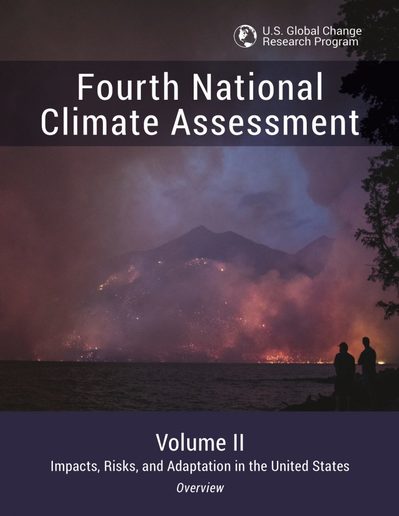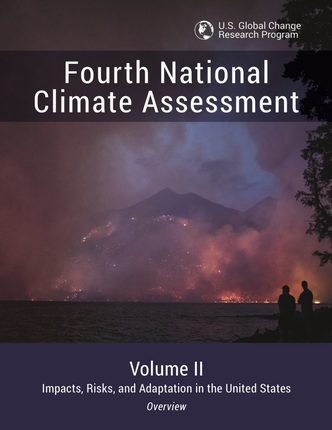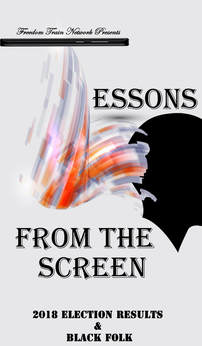|
Today we finish up our series on the Climate Science Olympics focusing on the 4 National Climate Assessment Vol 2. The 4 year report which gathers multiple scientist across multiple fields together to present climate science from multiple angles focusing both on causal factors and potential impacts. The last show was on the first half of the report which primarily focused on the environment, this show is focused on the second half of the report which is more focused on its affect on communities and regions.
0 Comments
Volume 2 of the 4th National Climate Assessment was released Friday and like the NATO report released in July, it tells of a frightening future if we don’t do what’s necessary to reduce our negative impact on the climate. The first volume of this report was released in November of 2017 a called the Climate Science Special Report (CSSR). While Volume 1 focused more on the science behind climate change and how it is physically affecting the earth and everything on it, this report focuses on the impact of the science and analysis presented in volume 1. On this episode of Lessons from the Screen, we are going to be diving into this report in our typical LftS fashion, breaking it down were we can and making it a bit more digestible while also opening up the lane for conversations.
Released in 2015 and produced by Jon Whelon, Stink follows his journey to find out what chemicals were used on his daughters pajamas creating the smell that overwhelmed the house after they opened the package. This search for the chemicals led him down a rabbit hole regarding the secrets of chemical use in corporations. Today on Lessons from the Screen we are going to be talking about this documentary, what it means, if its good, and is it worth your time.
Earlier this year in July of 2018 Kimberly Reed released a documentary that takes aim at the dark money flowing in politics following the Citizens United Supreme Court Decision. With a focus on the State of Montana as one of the last remaining bastions of hope for transparent campaign financing, this documentary dives into the fray of one of the most talked about subjects in politics. On this episode of Lessons from the Screen, we are going to be looking at the documentary in our traditional style of doing so. I hope you enjoy it, and take the time to let me know what you thought by going to the website and leaving a comment.
With the election Tuesday, the American People had a chance to give their opinion in the most direct and influential manner possible within the American System of Government; voting. The people voiced their opinions and what happened was somewhat expected, somewhat joyous, somewhat upsetting, and very much representative of the world we live in. As has been the fallout from those upset that things didn’t go totally their way. Renewed concerns about the irrelevance of voting especially amongst us Black Folk who found members of our race on the losing end of 3 Governors’ races; Florida, Georgia, and Maryland.
While these loses were upsetting for many of the Black People hoping to be a part of history making in their respective states, the larger liberal movement, of which the majority of Black Folk consider themselves to be a part, did have an overall good election. Democrats received the lion’s share of the votes taking control of the house in congress, and also improving their control locally. They increased their control over total state governments, meaning having control over the governorship and both chambers of congress, from 8 states to 14. They increased their control of legislatures in states from 14 to 18, and they increased their control of legislative chambers from 31 to 37 (legislative chambers are local houses and senates). While these are all great gains, they are also modest gains falling below the average and on the lower end of midterm changes during which the controlling party usually loses control. In this case, the Republicans maintained control of the senate and of the majority of state legislatures, and even though Republicans lost 6 governors seats, they still maintain control of the majority of them with 26 State Governors seats. So the results are a mixed bag, and while the majority of the news coverage has been explaining that mixed bag. Today on lessons from the screen we are going to talk about what this mixed bag means for us as Black People. We are going to be talking about the 3 governors races, what the difference between the house and senate are on the federal level, and what it means to be a race of people that live predominantly in red states while identifying politically with liberals. We are also going to be talking about some of the common misconceptions surrounding voting and the American government. We have a full plate on our return show, so let's dig in.
|
Patrick Irvineis a lover of learning and analyzer of anything that can be analyzed, even if it probably shouldn't be. Categories
All
Archives
August 2021
|
||||||||||||||||||||||||||||||








 RSS Feed
RSS Feed